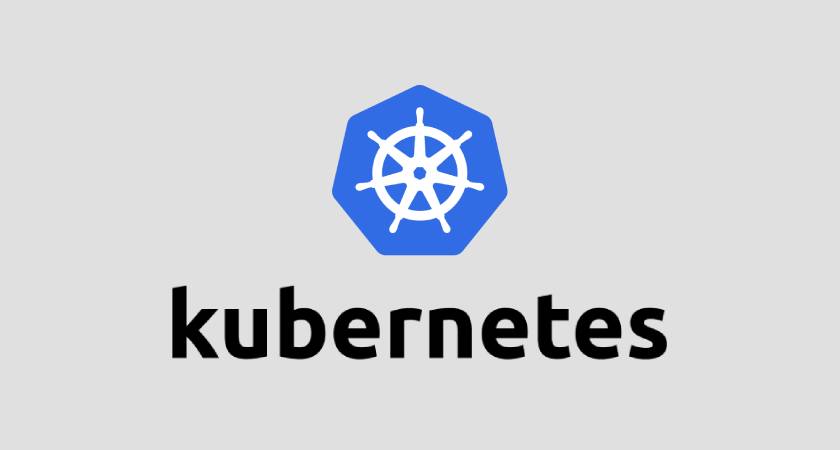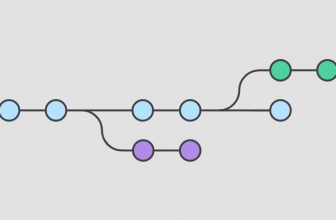
Here at SkillComplete, our team of experts has conducted thorough research of all the available courses on leading online learning platforms such as Udemy, PluralSight, Coursera, Edx, Linkedin learning, and compiled the list of Best Kubernetes courses, tutorials, training, certifications, and classes for you. Previously we have provided the list of best Docker, Jenkins and Openshift courses. The listed programs are suitable for beginners, intermediate, and advanced developers. As cloud computing and DevOps adoption is on the rise, Kubernetes is trending among software organizations, and professionals with Kubernetes certification can bag high-paying jobs in the industry. First, let us look at a brief introduction about Kubernetes.
Kubernetes is an open-source container orchestration platform that features automatic deployment, management, and scaling of containerized services. Conventionally organizations used physical servers for deployment that triggered resource allocation issues. This situation prompted the need for distinct servers for each application, this solution resulted in underutilization of resources and increased cost. These limitations gave way to the birth of Virtual Machines (VMs) that provided increased security and better scalability. Eventually, Containers originated with properties to share Operating Systems across different applications. As a result of these relaxed isolation properties, Containers are lightweight.
Kubernetes provides you with a framework to run dispersed systems durably. It takes care of scaling and failover for your application, provides deployment patterns, and more.
Features of Kubernetes:
- Portability and Load balancing – Organizations can expand on-demand as Kubernetes containers are compatible with all servers and offer faster and simpler deployments. Kubernetes can disperse traffic and balance load to keep the deployment stable.
- Storage compatibility – Kubernetes permits automatic mounting of a storehouse system of your preference, such as local storage, public cloud providers.
- High availability and scalability – Kubernetes ensures the higher availability of your application by adding a reliable storage layer. Its compatibility with almost all servers makes it easier to scale.
- Self-repairing – Kubernetes restarts failed containers, replaces, and kills those that don’t successfully respond to health checks.
- Authentication and configuration management – Kubernetes provides you with secure storage of passwords, OAuth tokens, and SSH keys. You can successfully update the configuration information without reconstructing container images.
Let us look at some of the Best Kubernetes Courses available online.
Best Kubernetes Courses and Tutorials Online:
Kubernetes for the Absolute Beginners – Hands-on – Udemy
Opted by more than one lakh students, this tutorial is one of the top Kubernetes courses on Udemy. Kubernetes is in demand in the DevOps domain, and this course will help you build a strong foundation in it. This course is for absolute novices. With little to no understanding about Kubernetes, once you take this course and complete all of the coding exercises, you will be ready to deploy your applications on a Kubernetes platform. This tutorial will give you real-world experience and the opportunity to operate with other learners in the community.
Key Points :
- You will gain a fundamental understanding of Kubernetes Fundamentals.
- You will learn to develop Kubernetes Configuration Files in YAML.
- You will learn to deploy Kubernetes Cluster on local systems.
- You will learn to deploy Kubernetes on Cloud – Google Cloud Platform.
- You will learn to deploy Applications on Kubernetes.
- You will learn to set up ReplicaSets, Services, and Deployments on Kubernetes.
Pre-requisites: Prior understanding of Spring framework and Java is required.
Duration: 5.5 hours | Level: Beginners | Access: Lifetime | Certificate: Certificate of completion
Kubernetes Mastery: Hands-On Lessons From A Docker Captain – Udemy
The instructor of this tutorial is an award-winning Docker Captain and Kubernetes expert. The tutor designed the course to take your Kubernetes skills from first-time users to using K8s in production. If you are new to container orchestration and intend to learn Kubernetes, then this training program is tailor-made for you! This course takes you through a bundle of tools like local development setups, docker-compose, registry, Docker Hub, Swarm basics, Kubernetes basics, and general Docker best practices.
Key Points :
- You will learn Kubernetes and cluster tools from an award-winning Docker Captain!
- You can drive your team into the future with the latest Kubernetes & container skills!
- You will understand the right ways to use Kubernetes for proper DevOps workflows.
- You will learn production K8s topics like rolling updates, health checks, and failure recovery.
- You will understand when to use different types of app configuration like arguments, environments, and ConfigMaps.
- You will Make Kubernetes YAML manifests and deploy them using infrastructure-as-code methods.
Pre-requisites: Prior understanding of Kubernetes is required.
Duration: 8 hours | Level: Beginners | Access: Lifetime | Certificate: Certificate of completion
Kubernetes: Basic Architecture and First Deployment – Coursera
This Kubernetes training targets absolute beginners who intend to learn Kubernetes from scratch. The tutor takes a practical and hands-on approach to teach fundamental concepts of Kubernetes. This course will enable you to create a cluster and service and integrate the server with outside connections. Utilize the split-screen video functionality to your benefit.
Key points :
- Understanding core fundamental concepts of Kubernetes.
- Write an actual Kubernetes Deployment.
- Create a cluster and service to expose the Cluster to outside connections.
- Obtain a high-level understanding of K8s Cluster: Nodes, Pods, and Objects.
- This course has a Split-screen video, where you can follow the tutor’s instructions step by step on the same screen.
Pre-requisites: You will need to know the concepts of YAML files and containers before taking this course.
Duration: 2 hours | Level: Intermediate | Access: Lifetime | Certificate: Certificate of completion
Introduction to Containers w/ Docker, Kubernetes & OpenShift – Coursera
By the end of this course, you will be able to build custom applications in a cloud-native way. You learn to deploy your application using containerization tools and techniques on any cloud (private, public, or hybrid). It also covers the significance of containers in cloud computing and other related technologies such as Docker, Kubernetes, and Red Hat Openshift. This course offers hands-on lab exercises facilitated by the IBM Cloud and Skills Network Labs environments; these practical exercises will guide you in getting started with Docker, orchestration and scaling with Kubernetes, and simplifying deployments with OpenShift.
Key Points:
- You will develop an understanding of the benefits of containers.
- You will learn to build and run a container image.
- You will develop an understanding of Kubernetes architecture.
- You will learn to write a YAML deployment file.
Pre-requisites: You will need to know the concepts of YAML files and containers before taking this course.
Duration: 12 hours | Level: Beginner | Access: Lifetime | Certificate: Certificate of completion
Kubernetes Hands-On – Deploy Microservices to the AWS Cloud – Udemy
This course is the highest-rated course on Kubernetes on the Udemy platform. Even if you are not a coder or know nothing about programming languages, this course will prepare you to set Docker images and get these running using Kubernetes. You will get introduced to AWS cloud and learn about the AWS Elastic Kubernetes Service. You will also learn to monitor your service using the ELK/Elastic Stack or with Prometheus and Grafana.
Key points:
- You will learn to deploy containers to a Kubernetes Cluster.
- You will be able to run Kubernetes in AWS using either EKS or Kops.
- You will learn to monitor a live Kubernetes cluster using Prometheus and Grafana.
- You will learn to analyze system-wide logs using the ELK Stack (ElasticStack), Kibana, and ElasticSearch.
- You will learn to handle Alerts in a Kubernetes cluster by notifying Slack Channels.
- You will understand how Requests and Limits work in Kubernetes.
- You will learn to use Kubernetes Horizontal Pod Autoscaling.
- You will configure Ingress Control on a live Kubernetes deployment.
- You will understand Kubernetes StatefulSets.
- You will learn to integrate Kubernetes with a Continuous Deployment System (CD).
- You will use Helm to Manage Charts and dynamically update your Kubernetes YAML.
Pre-requisites: Prior knowledge of Docker and AWS is preferred.
Duration: 28 hours | Level: All levels | Access: Lifetime | Certificate: Certificate of completion
Architecting with Google Kubernetes Engine Specialization – Coursera
Thi course will teach how to implement solutions using Google Kubernetes Engine, or GKE, including building, scheduling, load balancing, and monitoring workloads. The tutor will teach you how to manage role-based access control and security and provide a persistent warehouse to these applications. This course incorporates hands-on exercises hosted on the QuickLabs platform that tests your skills learned in the video lectures.
Key points :
- You will understand the difference between Google Cloud computing platforms.
- You will understand the components and architecture of Kubernetes.
- You will learn to store container images in Container Registry.
- You will understand the role of the Kubectl command.
Pre-requisites: No Prior knowledge of Kubernetes is required.
Duration: Self-paced | Level: Beginner | Access: Lifetime | Certificate: Certificate of completion
Master Cloud-Native Infrastructure with Kubernetes – LinkedIn Learning
This course is a learning path that covers multiple Cloud technologies including, Kubernetes. In this video tutorial series, you will learn how to get started with Containers and Kubernetes; build microservices architectures for reliability and resilience. This series has a total of 8 video classes including, Docker, Kubernetes, Microservices, Prometheus, service Mesh with Istio, Securing containers, and Kubernetes ecosystem.
By the end of this learning series, you will become well versed in Kubernetes and working with Cloud deployment.
Key points :
- You will learn to create your first Kubernetes cluster.
- You will learn to Build a microservices architecture.
- You will learn to explore the Kubernetes ecosystem and tools such as Prometheus, Istio, and Spinnaker.
Pre-requisites: No Prior knowledge of Kubernetes is required.
Duration: 13 hours | Level: Beginner | Access: Lifetime | Certificate: Certificate of completion
Kubernetes: Your First Project – LinkedIn Learning
This tutorial is one of the most popular courses on the LinkedIn Learning platform. This video course walks you through your first Kubernetes project, in which you help a fictional company, Explore California, move their static website, currently running in AWS on virtual machines, into containers through Kubernetes. The tutor discusses containers, the scheduler, the API server, the controller manager, and Kube-proxy in detail. He teaches the use of Docker and Helm. Finally walks you through deploying the created container into AWS Elastic Kubernetes Service (a classic managed Kubernetes service) and AWS Elastic Container Registry (an alternative to Docker Hub).
Key Points:
- Learn to build a custom Kubernetes project.
- Learn to create containers and deploy these into AWS Elastic Kubernetes Service and AWS Elastic Container Registry.
- You will understand Containers, the Scheduler, the API server, the controller manager, and the Kube-proxy.
Pre-requisites: No Prior knowledge of Kubernetes is required.
Duration: 3 hours | Level: Beginner | Access: Lifetime | Certificate: Certificate of completion
Kubernetes for Beginners: Google Cloud, AWS & Azure – Udemy
This online video training is for beginners who intend to learn Kubernetes. You will get a chance to work with Spring Boot Java Microservices and play with Google Kubernetes Engine, AWS Elastic Kubernetes Service, and Azure Kubernetes Service. In this course, you will learn to deploy Spring Boot Microservices to Kubernetes Clusters that are created on Google Cloud Platform using Google Kubernetes Engine (GKE). You will also learn to implement Service Discovery, Centralized Configuration, Distributed Tracing, and Load Balancing for Spring Boot Microservices deployed in Kubernetes Clusters. You will also get a chance to work with Helm Charts, Istio Service Mesh, Google Stackdriver, and Spring Cloud Kubernetes to play with Spring Boot Java Microservices on Kubernetes.
Key points :
- You will learn to simplify DevOps with Docker and Kubernetes for 6 Java Spring Boot Applications.
- You will learn to use Kubernetes to orchestrate Docker-based Java Spring Boot Microservices.
- You will learn Kubernetes and Docker Concepts – Images, Repository, Containers, Pods, Replica Sets, and Deployments.
- You will understand the architecture of Kubernetes and Docker.
- You will use Kubernetes Declaratively with YAML Configuration.
- You will learn to expose your Kubernetes Deployments with Services and Ingress.
- You will learn to use Kubernetes Config Maps and Secrets.
- You will learn to make Zero Downtime Releases with Kubernetes.
- You will learn to create Kubernetes clusters with Master Node and Nodes.
- You will learn to deploy Spring Boot Web Applications and Rest API to Kubernetes.
- You will become an expert on the Kubernetes command-line tool – Kubectl.
- You will work with Docker, Docker Compose, and Kubernetes.
- You will use Persistent Storage with Kubernetes – PV and PVC.
- You will implement Service Discovery, Centralized Configuration, Distributed Tracing, and Load Balancing for microservices deployed in Kubernetes.
- You will implement different Auto Scaling approaches with Kubernetes.
- You will use Google Stackdriver for Tracing, Error Reporting, and Logging.
- You will integrate Spring Boot Microservices on Kubernetes with Istio.
- You will perform Blue-Green Deployments and Canary Deployments with Istio.
- You will integrate Kiali, Graphana, and Prometheus with Istio and Kubernetes
- You will implement Distributed Tracing for Spring Boot Microservices with Istio and Jaeger.
- You will use Helm to Automate Microservices Deployment on Kubernetes.
Pre-requisites: Some programming experience with Java, Spring, and Spring Boot are required.
Duration: 13 hours | Level: Beginner | Access: Lifetime | Certificate: Certificate of completion
Kubernetes CKS 2021 Complete Course – Theory – Practice – Udemy
This course is the best-seller one on the Udemy platform to learn Kubernetes. This video tutorial will help you in your Kubernetes Security Specialist(CKS) certification journey. The tutor will cover all the topics of CKS simply with hands-on exercises for each. You will learn to set up your own CKS cluster together using the sample scripts provided in this course. If you wish to deep dive into Kubernetes security and becoming a Kubernetes Certified Security Specialist (CKS) is your goal, then this course is tailor-made for you!
Key points :
- You will grasp the complete CKS preparation.
- This course includes CKS preparation material – full Theory and Practice.
- You will learn the Kubernetes Security Concepts.
- You will learn to think from a hacker’s perspective.
- You will attain deep technical insight into Kubernetes.
Pre-requisites: Before appearing for the CKS certification, you will need to have CKA certification. Some Kubernetes Admin knowledge is also preferred.
Duration: 12 hours | Level: Intermediate | Access: Lifetime | Certificate: Certificate of completion
Certified Kubernetes Administrator (CKA) with Practice Tests – Udemy
With this course, you can prepare for the Certified Kubernetes Administrators Certification(CKA) by testing your knowledge with hands-on labs. This course provides video lectures on Kubernetes fundamentals and coding exercises to put your skills to the test. You will acquire real-world experience and get a chance to work with other students in this learning community. Once you have enrolled in the course, you get access to the community where the tutor discusses the important topics, tips, and tricks to pass the exam.
Key points :
- You will learn how to administer, design, and build a Kubernetes Cluster from scratch.
- You will learn the Testing of a Kubernetes Cluster end-to-end.
- You will learn to Troubleshoot a Kubernetes Cluster.
- You will learn how to Secure a Kubernetes Cluster.
- You will learn how to configure storage on a Kubernetes Cluster.
- You will learn how to configure a Network on a Kubernetes Cluster.
Pre-requisites: Prior knowledge of YAML and Docker is preferred.
Duration: 19 hours | Level: All levels | Access: Lifetime | Certificate: Certificate of completion
Learning Kubernetes – LinkedIn Learning
This course introduces enrollees to Kubernetes and makes them understand how to set up a Kubernetes environment. You will learn to deploy a sample Kubernetes application and manage it using the Kubernetes dashboard. The tutor then deep dives into deploying more complicated applications with databases and APIs. Towards the end of this course, you will get familiarized with more advanced topics such as production deployments, namespaces, monitoring and logging, and authentication and authorization.
Key points :
- You will learn architecture and basic building blocks of Kubernetes.
- You will learn to set up a Kubernetes environment on your machine.
- You will learn to analyze the Kubernetes dashboard, and deal with configuration data and application secrets.
- You will understand production Kubernetes deployments.
- You will get a detailed look at namespace, monitoring and logging, and authentication and authorization.
Pre-requisites: No prior knowledge of Kubernetes is required.
Duration: 3 hours | Level: Beginner | Access: Lifetime | Certificate: Certificate of completion
Introduction to Containers, Kubernetes and OpenShift – EDX
This course introduces the enrollee to containers and their related technologies such as Docker, Kubernetes, OpenShift, and Istio. You will understand the fundamentals and practice hands-on in the cloud.
Key points :
- You will understand the benefits of using containers.
- You will learn to build and run a container image.
- You will understand Kubernetes architecture.
- You will learn to write a YAML deployment file.
- You will learn to expose deployment as a service.
- You will learn to manage applications with Kubernetes.
- You will use ReplicaSets, auto-scaling, rolling updates, and service bindings.
- You will understand the benefits of OpenShift, Istio, and other important tools.
Pre-requisites: Prior understanding of Cloud Computing is preferred.
Duration: 3 weeks/ Self-paced | Level: Beginner | Access: Lifetime | Certificate: Certificate of completion
Introduction to Kubernetes – EDX
In this course, the tutor will discuss some of Kubernetes’ basic concepts and the architecture of the system, the problems it solves, and the model that it uses to handle containerized deployments and scaling. You will learn to deploy a stand-alone and multi-tier application. You will learn about ConfigMaps and Secrets, and how to use Ingress.
Key points :
- You will understand the origin, architecture, primary elements, and building blocks of Kubernetes.
- You will learn to set up and access a Kubernetes cluster using Minikube.
- You will learn the ways to run applications on the deployed Kubernetes environment and access the deployed applications.
- You will understand the usefulness of Kubernetes communities and how you can participate.
Pre-requisites: Basic knowledge of Linux Command Line Interface (CLI), and container technology like Docker, Rkt is required.
Duration: 14 weeks/ Self-paced | Level: Beginner | Access: Lifetime | Certificate: Certificate of completion
Docker Mastery: with Kubernetes +Swarm from a Docker Captain – Udemy
This course is one of the best-sellers on the Udemy platform. It is popular among professionals for learning the use of containers, development & testing, and server deployments and production. The tutor is an award-winning Docker Captain and DevOps consultant. It also offers Slack Chat and Live Weekly Q&A with the tutor.
Key points :
- You will learn how to use Docker, Compose, and Kubernetes on your machine for better software building and analysis.
- You will learn Docker and Kubernetes official tools from an award-winning Docker Captain!
- You will learn faster with included live chat group and weekly live Q&A.
- You will gain the skills to build development environments with your code running in containers.
- You will learn to build Swarm and Kubernetes clusters for server deployments.
- Practice Hand’s-on with best practices for making Dockerfiles.
- You will learn to build and publish your custom images.
- You will learn to create your custom image registry to store your apps and deploy them in corporate environments.
Pre-requisites: Basic knowledge of Linux Command Line Interface (CLI), and container technology like Docker is required.
Duration: 19 hours | Level: All levels | Access: Lifetime | Certificate: Certificate of completion
Conclusion
That’s all about the best Kubernetes courses online. Kubernetes is an open-source system for deploying, scaling and managing containerized applications. It is trending among DevOps and Cloud professionals, and Kubernetes certified engineers are in-demand. We hope the above list of the best Kubernetes courses helps you in your learning journey. You may also want to check Docker, Jenkins and Openshift courses.
Thanks for reading this article. If you found the list useful, share it with your friends and colleagues. In case you have any questions or feedback, please feel free to drop a note.
Happy learning!



![Best Jenkins Courses Online – Updated [April 2024]](https://skillcomplete.com/wp-content/uploads/2022/01/jenkins-blog-1-336x220.jpg)